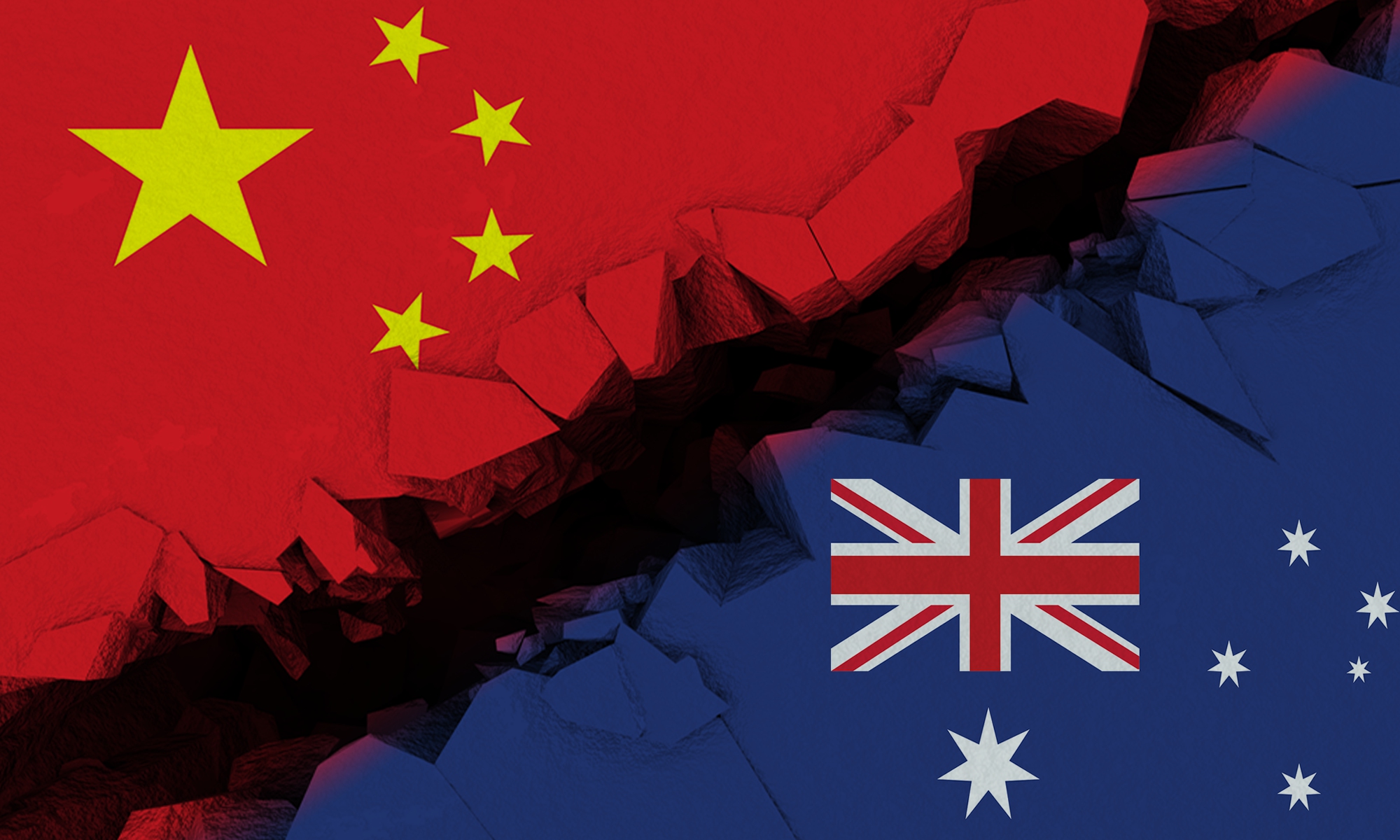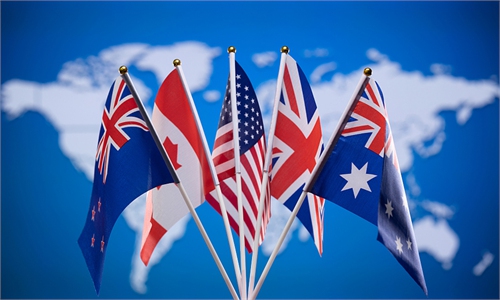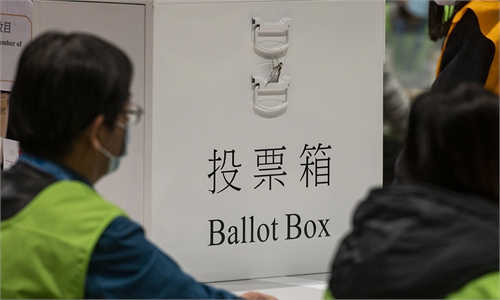China-Australia diplomatic ties may worsen due to anti-China rhetoric for 2022 Aussie election: experts

China Australia Illustration: Deng Zijun/Global Times
There were almost no media reports, let alone any activities to celebrate the 49th anniversary of China-Australia diplomatic relations which fell on Tuesday as tensions continue between the two countries this year.
Unlike the 20th and 40th anniversaries of the establishment of China-Australia diplomatic relations when grand commemorative activities were held, on the 49th anniversary, Australian media were busy bashing China over issues such as the Hong Kong regional election following the US and other allies in the Five Eyes Alliance.
Chinese observers described bilateral relations at their lowest ebb. Although next year will mark the 50th anniversary, they predict that ties are likely to get even worse during Australia's 2022 federal election campaign as candidates would make multiple aggressive speeches targeting China to serve as a public stunt to help them win more votes.
Australian politicians' harsh rhetoric to win elections next year would further poison its overall relationship with China, according to observers.
Half a century ago, decisive and wise Australia politicians withstood pressure and established diplomatic relations with China on December 21, 1972 based on their shrewd geopolitical judgment of the world at that time, Chen Hong, a professor and director of the Australian Studies Centre, East China Normal University, told the Global Times on Tuesday, citing historical events.
From then on, the China-Australia relationship opened a new chapter of mutual cooperation and benefit, Chen noted.
However, in recent years Canberra has pushed bilateral ties into an abyss by serving as Washington's henchman over its China-containment strategy. Now it smeared China based on groundless accusations about Hong Kong's Legislative Council election ahead of the 49th anniversary. All these would only make Canberra become the victim of its own evil deeds, observers warned.
Next year marks the 50th anniversary and economic exchanges with China would remain important for Australia as China is still its largest trading partner, while the prospect for the bilateral ties is very bleak, Chen believes.
As Australia's next federal election is to happen in the first half of 2022, candidates are likely to use China-related issues to win support, given the strengthening of anti-China forces within the country, which would further inflame the conflict between China and Australia and bring bilateral relations to a lower point, Chen pointed out.
There is a certain consistency between Australia's Liberal Party and Labor Party in cooperating with some of the US' strategy, Chen pointed out. He noted that whichever party wins in the upcoming election should look at its relationship with China more rationally.
Going back to the days before the establishment of diplomatic relations, despite more divergences between the two countries, Australian leaders at the time had that wisdom to seek common ground for mutually beneficial relations, so how could today's Canberra continue its short-sighted and immature China policy under the US' hegemony? Chen asked.




